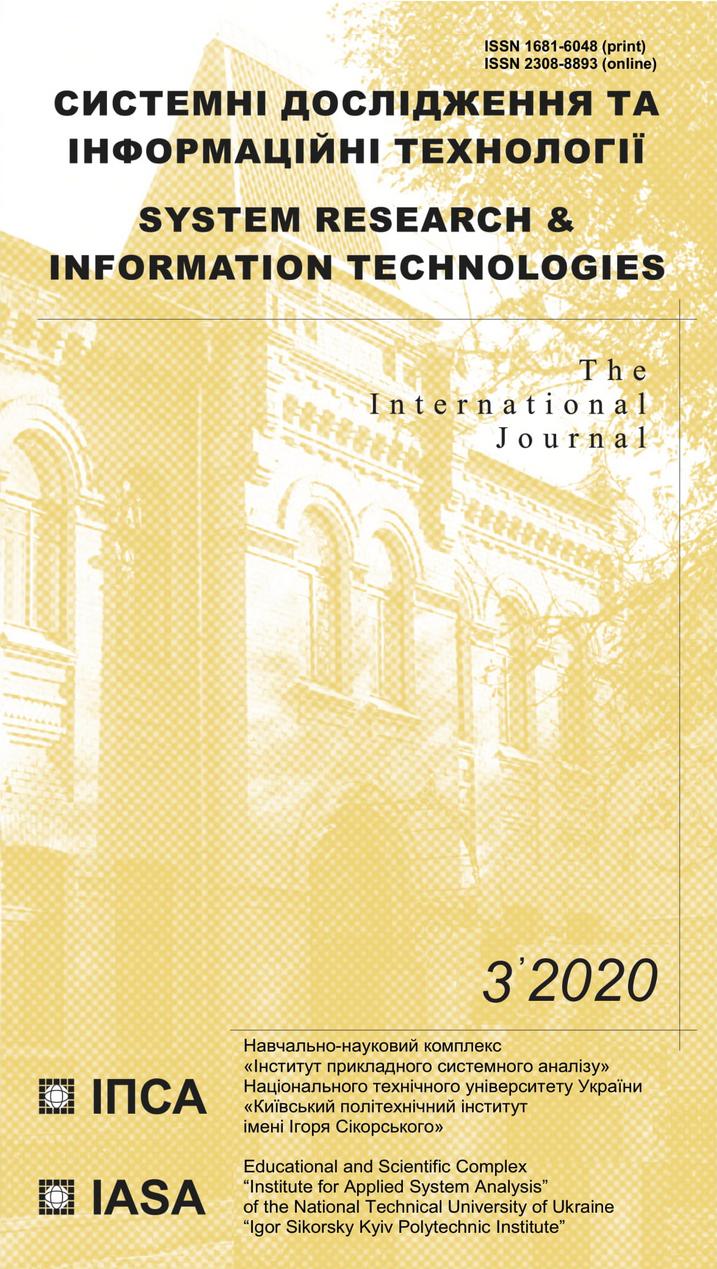Systematicity of organizational management
DOI:
https://doi.org/10.20535/SRIT.2308-8893.2020.3.04Keywords:
system, management, administration, science, art, skills, vocation, style of management, systematic management typologyAbstract
Organizational management is the weakest element in the evolution of the modern civilization. It creates a lot of problems at all levels of its hierarchy that have not been solved for a long time. Overcoming these problems requires streamlining, improving and enhancing the instrumental methodological arsenal of organizational management, creating a system and thus guaranteeing results and efficiency of its practical use. In this article, we make an attempt to formulate the ideas and content for further studies. Integrating them in the systemizing stream, i.e. building/restoring the systematic character of organizational management, this article addresses its basics, such as definitions, fundamental principles, the style difference and system typology that should create main landmarks in the field of a new scientific approach to an interested reader.References
I. Adizes, The Ideal Executive: Why You Cannot Be One and What to Do About It. Moscow, 2007, 263 p. (in Russian).
A.V. Buhvalov and V.S. Kat'kalo, “From the Origins of Researches in Management to New Paradigms: Analysis of Innovative Companies”, Russian Journal of Management, no. 6 (4), pp. 49–60, 2012 (in Russian).
V.A. Dresvyanikov, “The Concept of Intellectual Management”, Management in Russia and Abroad, no. 1, pp. 100–105, 2014 (in Russian).
K.S. Drogobyckaya and I.N. Drogobyckij, Architectural Models of Economic Systems. Moscow, 2014, 301 p. (in Russian).
A.I. Drogobyckij, Corporate Management in the Knowledge Economy. Moscow, 2008, 150 p. (in Russian).
I.N. Drogobyckij, “Menthal Models in Economy”, Economics Science in Modern Russia, no. 1 (84), pp. 7–14, 2019.
I.N. Drogobyckij, System Cybernation in Organizational Management. Moscow, 2016, 333 p. (in Russian).
I.N. Drogobyckij, System Analysis in Economics. Moscow, 2017, 423 p. (in Russian).
V.M. Zotov, Intellectual Property Managing System in Hi-Tech Holding Groups. Moscow, 2018, 159 p. (in Russian).
D. Kahneman, Thinking, Fast and Slow. Moscow, 2016, 653 p. (in Russian).
G.B. Kleiner, “New Theory of Economic Systems and Its Practical Application”, Journal of Russian Academy of Science, no. 9, pp. 89–100, 2011 (in Russian).
G.B. Kleiner and M.A. Rybachuk, Systematically Balanced Economy. Moscow, 2017, 320 p. (in Russian).
G.B. Kleiner, “System Paradigm and System Management”,Russian Journal of Management, no. 6 (3), pp. 27–50, 2008 (in Russian).
I.I. Mazur, V.D. Shapiro, and N.G. Olderogge, General History of Management. Moscow, 2018, 888 p. (in Russian).
H. Mintzberg, Managing. Moscow, 2011, 288 p. (in Russian).
R. Thaler, Nudge: Improving Decisions About Health, Wealth, and Happiness. Moscow, 2018, 240 p. (in Russian).
M. Buckingham, “What Great Managers Do”, Harward business rewiew, no. 83(3), pp. 70–79, 2005 (in English).
P. Goleman, “Leadership that Gets Results”, Harward business rewiew, March–April, pp. 78–90, 2000 (in English).
T. Watson, “How Do Managers Think”, Management learning, no. 27 (3), pp.78–90, 1996 (in English).

